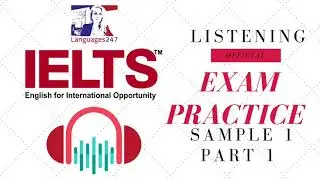Grammar practice - English course online 29 - Simple past: Verb "to have"
Today the grammar lesson is about the simple past: The verb "to have". This is one of the times that you have to master in order to have a simple but fluid conversation.
Remember that this course is for those who want to start from scratch to learn English. This is why the video perfectly explains the use of the verb "to have" in the past simple, with examples that you can understand and use in your day to day.
In order for this method to work better, we recommend that you repeat and try to imitate the accent. And finally, you can go to the platform to do the exercises related to this part and refine the knowledge. You can also find the listening part, with a dialogue in which this time will be used, another part with the most important and prominent vocabulary of the dialogue and finally the pronunciation section.
Do not think twice and start speaking English. Because mastering a language has never been so easy and quick.
Did you like this video? Do you want to see more videos like this? Give me a like and subscribe to my channel now:
/ @languages247
For more grammar lessons, you can go to: https://www.languages247.com
Follow Languages247 on Facebook and Twitter, for the latest updates:
/ languages247
/ languages247
Grammar practice, lesson 29 - English course online - Past simple: verb “to have”
The past simple of “to have” is irregular. Let’s see how to form positive, negative, and interrogative statements!
Positive form of “to have”
I had, you had, he had, she had, it had, we had, you had, they had
Negative form of “to have"
I had not, you had not, he had not, she had not, it had not, we had not, you had not, they had not
I hadn’t, you hadn’t, he hadn’t, she hadn’t, it hadn’t, we hadn’t, you hadn’t, they hadn’t
Interrogative form of “to have"
had I? had you? had he? had she? had it? had we? had you? had they?
had I not? had you not? had he not? had she not? had it not? had we not? had you not? had they not?
hadn’t I? hadn’t you? hadn’t he? hadn’t she? hadn’t it? hadn’t we? hadn’t you? hadn’t they?
When to use “to have” in the simple past? More examples
1/ completed actions - when it is over
The kids had an early night last night.
I had a nice lunch break.
2/ when I focus on the duration of an action:
They had a two-hour power cut.
He had a headache for 2 hours.
3/ when an action has happened once, never or several times in the past:
I had a headache every time.
They had homework every week.
4/ for a series of actions in the past:
We bought groceries. We cooked. We ate.
5/ for facts or generalisations in the past:
For a twelve-year-old he had a large vocabulary.
These criminals had troubled backgrounds.
Signal words / adverbs of time that go with this tense:
1/ last
Last year
last Wednesday
last time
2/ in
in March
in 2000
in the winter
3/ when
when he was a teenager
when I had a cat
when that happened
4/ Other signal words
yesterday
the other day






![Mining Simulator 2 Auto Mine & Sell, Auto Ore, Pets, Gears, Crates, Quests, TP, etc.[Pipa]](https://pics.providosiki.ru/watch/CA1gYXfv5oM)
























